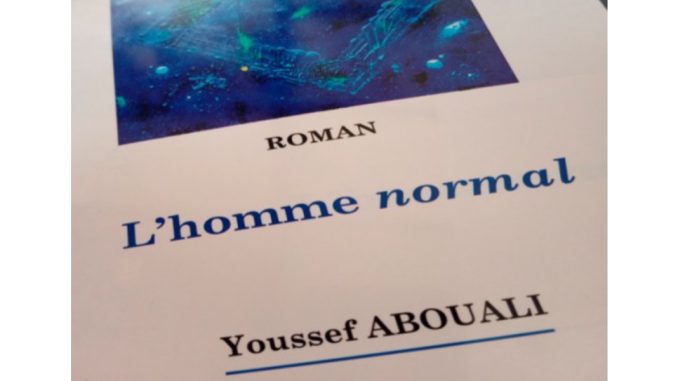
“What if everything in this novel was pure simulation,” said an eminent critic after reading “L’homme normal” (Eventus editions), the first novel by university professor Youssef Abouali. The author, reading his thoughts, replied: “Everything in this book has the value of pure truth”, and as Boris Vian said in the preface to “L’écume des jours”: “Everything is true because I imagined everything”. Thus ends the exchange around a novel that is disturbing to say the least. Moroccan “Romeo and Juliet”, it is. The same intensity. The same poetry. The same poignant ending. Of course, the narrators of the first two parts take us for a ride in stories of psychotherapy and virulent criticism of psychoanalytical circles. Then we are treated to what constitutes the heart of the novel, a love story written essentially in the feminine. The hero sets the tone and disappears immediately to make way for Malak’s soul, which tells an omniscient account of his version of events and what his lover has tried to conceal through modesty, self-censorship or ignorance.
It all begins in a classroom, Malak fell under the spell of the hero who was also his teacher. An intellectual fascination that soon turns to crystallization. The winds of life cause them to lose sight of each other, she continued her studies in Paris, languishing in the city she presents as the Moroccan “Las Vegas”. Then one day, buried love resurfaces, in the midst of Parisian spleen, during a banal discussion with her Argentinian friend Arev. So she decides to seduce him, drinks and smokes hash to give herself courage and approaches him on Facebook. Their exchanges are electric from the start, he explosive by nature, she boosted by the fury of youth and passion. The days go by, the conversations lengthen, and one thing leading to another, he becomes her reading advisor. Thanks to him, she discovers the masterpieces of Western literature and philosophy and with each new reading, she loves him more. They chat for hours and hours. He tells her hilarious anecdotes about the authors, shows her the connections to make, the criticisms to know. She asks him lots of questions and drinks from his inexhaustible fountain. Two pure spirits flirting in the skies of Art and Beauty. Malak couldn’t take it anymore, so she returns home, at the price of a great dispute with the one she calls throughout her story “my progenitor”.
She succeeds in meeting Kaamil, her still secret love. They smoke hash and spend six days of perfect happiness. They make love like a choreography, a performance, a refined and wild art. They listen to good music, enjoy tasty food and live in autarky. The hour of separation comes and the heroine experiences it as a tearing, a tearing from the nourishing breast, a death in the soul. She lives worse afterwards because her ex-lover has her committed to a private clinic to detoxify her. Kaamil visits her and helps her regain a semblance of hope, but when her “progenitor” learns about her, he calls her and makes her promise to abandon her angel. It was the beginning of hell for her, crowned with the prospect of rape by her treating shrink.
She therefore preferred to commit suicide rather than let herself be humiliated and defiled. She carried out her resolution and her suicide swept away what was left of her lover’s soul with its terrible shock wave.
Thus he throws himself from the height of his exceptionality into the unfathomable abyss of normality. A tragic end for the two lovers, one might say. For the author, it is a normal tragedy. This would explain the rage that seems to inhabit him, traces of which can be found in the dedication: “To your immaculate soul. Rest in peace, for my rage will soon pour down on their cursed race and reduce them all to ashes”. But isn’t it enraging to see Morocco’s most beautiful lovers, the most gifted, the finest, the most spiritual sacrificed in this way by a society and a culture that edifies normality, i.e. mediocrity, as an ideal? As the other would say, Malak and Kaamil are in fact only the synecdoche of the country’s youth who kill themselves either physically or by resigning themselves to perpetuating an obsolete ancestral way of life.

Be the first to comment